Grade 4 Vietnamese textbook has a word that makes parents worried
Reflecting to the reporter of Dan Viet newspaper, Ms. Tran Kieu, a parent whose child is in 4th grade this year in Vung Tau, said: "While preparing books and supplies for my child to prepare for the new school year, I opened the textbook to look at the content. When I read the poem Sweet fruit at the end of the season (page 49) in the Vietnamese book, Creative Horizon book series, I found the poem very difficult to understand. In it, there are 2 verses: "Delicious fruit reserved for the end of the season/ Waiting for you, your grandchild's part has not yet come in".
I don't understand what the word "tray" means or what it means. If even adults don't understand, how can a 4th grader understand it?
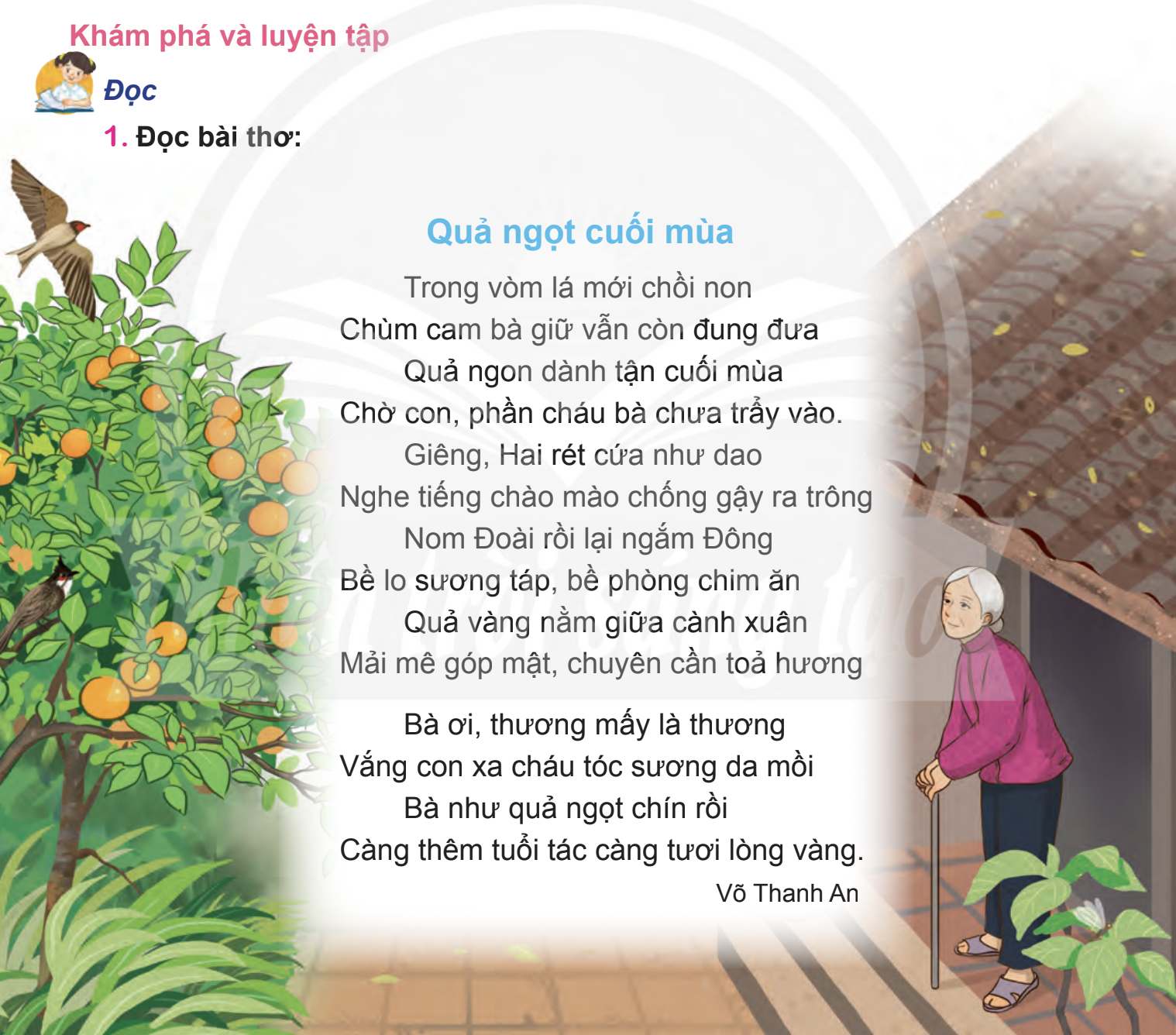
The poem "Last Sweet Fruit of the Season" in the 4th grade textbook. Photo: CMH
According to this parent: "I find the poem has many difficult words, the structure of the poem is meaningless, and adults find it tiring to read."
Not only Ms. Kieu, previously, some other parents also wondered about the "strange" words and sentences in the 2018 general education textbooks.
Another reading exercise has the content "Baby Le loves TV. There is a stork on TV. Baby points: Stork... stork... There is a shark on TV. Baby shouts: Scared. Mom holds baby and comforts him: The shark is on TV. Mom is so warm, baby is not scared anymore". Many parents do not understand what the word stork means.
Another example is in lesson 31 (Vietnamese subject, Canh Dieu book series) to the lesson on the rhyme "ua, ưa", the book gave an example of a word containing this rhyme. Among them, the controversial word is "dầu đỏ". In addition, another reading exercise in the same book series, "Quá và Chó", also uses many difficult and rarely used words. For example, "khổ béo", "cuồm", "tốp",... are very difficult for first graders to read and understand.
Sharing about the content of the new curriculum textbooks with the word "strange", Dr. Le Thi Thuy Vinh, Faculty of Literature, Hanoi Pedagogical University 2, said: "Tray (or trây) according to Vietnamese Dictionary page 1031 means picking, harvesting (usually associated with fruit).
This is a word belonging to the Northern dialect. This word appears in Vietnamese combinations such as "trây lộc" (meaning picking up buds), "trây một giá sim" (A faraway guest remembers each other/ Go up the hill to pick a basket of sim as a gift) (poem by Phạm Thiên Thư).
In the poem "The Last Sweet Fruit of the Season" by Vo Thanh An (page 20, Vietnamese 4, Connecting Knowledge with Life), the word "tray" also appears in the verse "The delicious fruit is reserved for the last day of the season/Waiting for my children, the part my grandchildren have not yet brought in". The textbook author also clearly explained the meaning of the word "tray" in this context because this is a local word, so primary school students in the regions cannot understand the meaning of the word.
It can be seen that local words of Vietnamese language are currently existing as a necessity. This shows that Vietnamese language exists in its diversity, so the inclusion of local words in Vietnamese textbooks at primary level in general and Vietnamese textbook 4 in particular is really necessary. Students only need to understand the meaning of local words in context (through the notes of the textbook author) is appropriate.
Also in the Vietnamese Textbook 4, Week 29, Lesson 19, in the reading exercise Going to Huong Pagoda Festival, there is a combination that appears as "trây hội". "Trây" in "trây hội" means to go to the festival, however, unfortunately the Textbook has not yet explained this word. Because "trây" (in trây hội) means to go, which is also a limited combination".
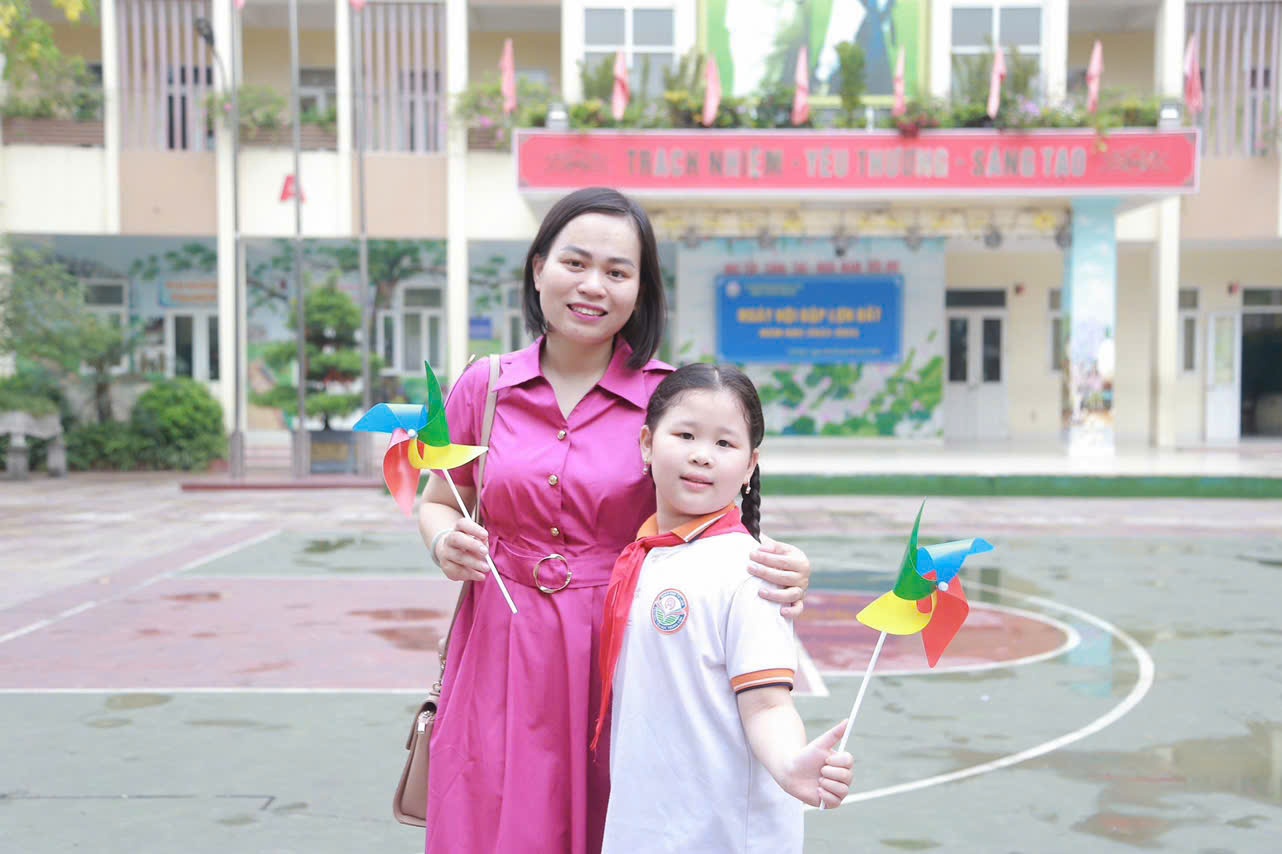
Dr. Le Thi Thuy Vinh, Faculty of Literature, Hanoi Pedagogical University 2 and her daughter in primary school. Photo: NVCC
Dr. Vinh further advised: "In the current teaching and learning context, in addition to teachers teaching in class, at home many parents also tutor their children to read the texts in the textbooks in advance and review and consolidate these lessons. For difficult words (local words, ancient words or words expressing abstract concepts) appearing in the text, parents need to carefully look up these words in some tool books such as the Vietnamese Dictionary of the Institute of Linguistics and explain the meaning of the words to their children. Note that, for the local and ancient word classes, it is only necessary to help children understand the meaning of the words in a specific context, without having to go into detail to understand the origin of the word or the development of the word's meaning.
In cases where there is no clear and accurate answer, parents can contact teachers or experts for consultation because these are the only reliable and correct consultation channels. Posting subjective (sometimes extreme) feelings on social networks can lead to undesirable consequences."
Source: https://danviet.vn/phu-huynh-thac-mac-mot-tu-la-trong-sach-giao-khoa-tieng-viet-lop-4-chuong-trinh-moi-20240817083302211.htm




![[Photo] Launching Ceremony of the Specialized Electronic Information Page of the Communist Party of Vietnam - 14th Congress](https://vphoto.vietnam.vn/thumb/1200x675/vietnam/resource/IMAGE/2025/9/12/4c1b894be2ea4e3daccfd8c038b6fb46)
![[Photo] General Secretary To Lam attends the launching ceremony of the website of the Communist Party of Vietnam - 14th National Congress](https://vphoto.vietnam.vn/thumb/1200x675/vietnam/resource/IMAGE/2025/9/12/0d4fce7dbce2409cb3c03c21fdf3c3b5)

![[Photo] Thac Ba Lake: Towards an international-class tourism, resort and cultural center by 2040](https://vphoto.vietnam.vn/thumb/1200x675/vietnam/resource/IMAGE/2025/9/12/0940443efe0a427b88707caadba1cc41)




















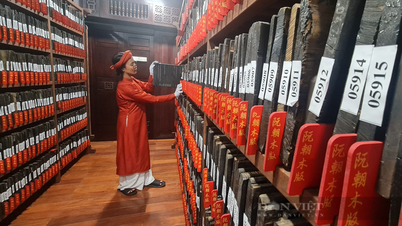

![[Photo] Where the history of resistance comes alive with modern technology at "95 years of the Party Flag lighting the way"](https://vphoto.vietnam.vn/thumb/1200x675/vietnam/resource/IMAGE/2025/9/12/81c1276f52b849c8b16e2d01dd1c85e4)






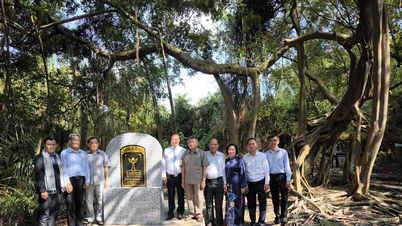













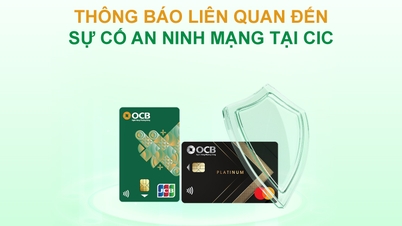



















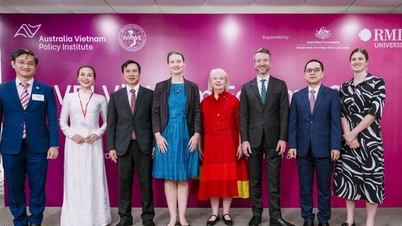


























Comment (0)